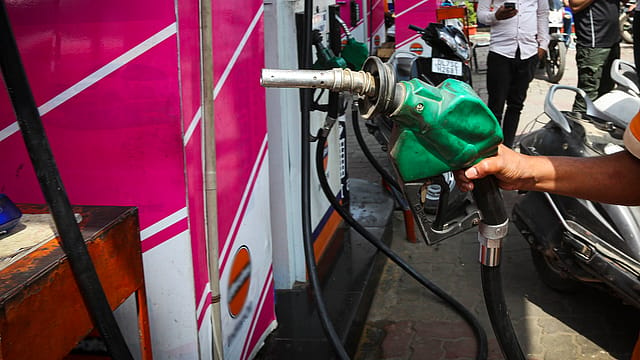Govt slashes windfall tax on petroleum crude to ₹8,400 per metric tonne
ADVERTISEMENT

The Indian government has announced a reduction in the windfall tax on petroleum crude to ₹8,400 ($100.66) per metric tonne from ₹9,600, effective from May 1. The tax, which is updated every two weeks, remains nil for diesel and aviation turbine fuel.
Previously, on April 16, the government had increased the windfall tax on petroleum crude from ₹6,800 to ₹9,600 per metric tonne.
In a recent string of updates, the government decided to ramp up the windfall tax on petroleum crude, elevating it to ₹6,800 from ₹4,900 per metric tonne as of April 3. This fiscal measure, originally introduced in July 2022, serves as a regulatory tool targeting private refiners who were redirecting fuel exports abroad to seize the opportunity of wider refining margins instead of catering to the domestic market. Notably, the Special Additional Excise Duty (SAED) for exporting diesel, petrol, and Aviation Turbine Fuel (ATF) remained unchanged at zero.
On March 15, the finance ministry opted to increase the windfall tax on domestically sourced crude oil to ₹4,900 per tonne, marking a rise from the earlier SAED of ₹4,600 per tonne that was in effect during the preceding fortnight. Furthermore, on February 16, the government chose to increase the windfall tax on petroleum crude from ₹3,200 to ₹3,300 per metric tonne and introduced a tax of ₹1.5 per litre on diesel, which had previously been exempt from taxation.
The windfall tax is activated when global benchmark rates soar beyond $75 per barrel for domestic crude oil or when product cracks, indicating the margin discrepancy between crude oil and final petroleum products, exceed $20 per barrel for diesel, ATF, and petrol exports.
Notably, rating agency Moody, in a report last year, said that India's windfall tax on exports of domestically produced oil had contributed to the reduction of marketing losses for state-owned refining and marketing companies. Indian Oil Corporation Limited (IOCL), Bharat Petroleum Corporation Limited (BPCL) and HPCL together control around 90% of the fuel retailing network in India.
The ratings agency expects marketing margins to normalise only when the refining and marketing companies' net realised prices for petrol and diesel are allowed to freely align with international prices. "This will likely happen only in 2024 after the conclusion of general elections in India," says the ratings firm.